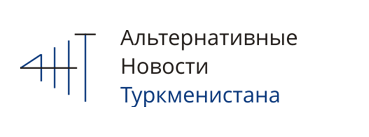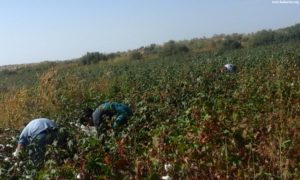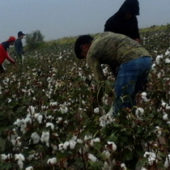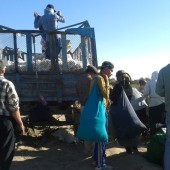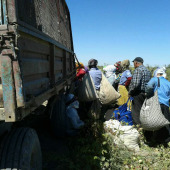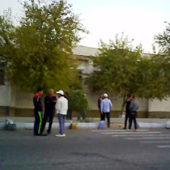Reports from the Turkmen regions of Mary and Lebap said that the authorities have started summoning civil servants for the cotton picking season since August 15. The roll call started with middle school support staff, janitors and guards, while teachers are likely to be called up from the start of the school year. Their participation will be discussed at the upcoming teachers’ meetings ahead of September 1st.
Similarly to previous years, the authorities forced people to gather at 6 a.m. in specified areas. They were then put on buses and dropped off at the fields. This operation went ahead under the control of school principals and local education authorities, while the police, both in uniform and in plain clothes, were monitoring the process.
“When they took us, we were 37, from different schools and kindergartens. They sent us to the Vekilbazar district,” a source from the Mary region said. “Nothing changed from the past years: we carried special clothing, aprons and a packed lunch. Our salary is maintained during the harvest. The only difference with previous years was the fee they gave us for the collection. We now receive 40 tenge [about 11 US cents at the official rate, or about 5 cents at the market rate] per kilogram of cotton collected. Last year it was half that.”
The source pointed out that a double fee failed to help collectors cope with this year’s inflation. Prices of food products in the markets increased more than twofold.
“We used to buy cooking oil for 7 manats per liter, now we need 15 or more. Basic food prices all increased, from sugar to cereal, to canned food,” the source said.
ATN sources noted that there is still little cotton in the fields. Last year, harvest began at the end of August in the south and east of the country and at the beginning of September in the north.
The widespread use of forced labor for cotton harvesting has led several global brands to stop buying cotton and textiles from Turkmenistan. H&M and Inditex, the conglomerate that owns Zara, Bershka, Pull & Bear and others, were among these companies.
Gaspar Matalayev, ATN’s forced labor monitor, remains in prison after being arrested for monitoring the 2016 cotton harvest.
